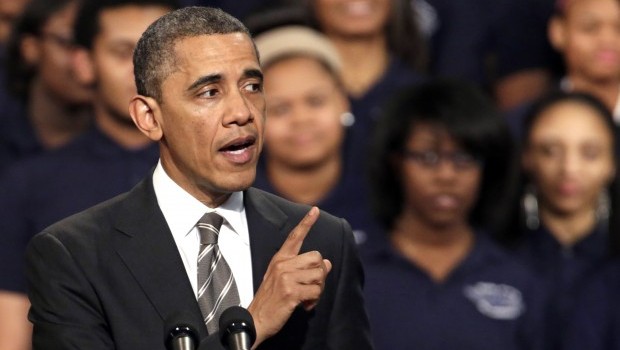Ever since Barack Obama assumed the presidency of his country he has pursued the outstretched hand’ policy towards Iran, without success. Today, four years later, Washington has again renewed this policy towards Tehran, this time in the words of the US vice president, who warned that the diplomatic window is narrowing.
Tehran, through its foreign minister, was quick to respond positively to the US offer-which stressed the need to negotiate on the nuclear issue-but only under certain conditions. [Iranian foreign minister] Salehi asked: How do we trust again this new gesture? In other words this means that Iran does not trust America, rather than vice versa, although Washington knows full well that Iran is moving in every area to cultivate its agents and spread instability, and of course threaten the interests of the international community.
It is enough to consider what Iran is doing in Iraq, Lebanon, Yemen and Bahrain, and of course Syria, and after all that Iran says it is not confident in Obama’s calls to negotiate. This is odd, but what is even odder is that America’s outstretched hand policy is always used when Tehran is just about to face its internal dues. In 2009, at the start of the Green Revolution against the backdrop of Iranian presidential elections that were marred by fraud, Obama proceeded with the outstretched hand policy. Today, despite all that Iran is doing, and with the Iranian presidential elections around the corner amid the ongoing debate between Ahmadinejad and his opponents in the Iranian regime, Washington has returned with the same policy once again.
Of course, I am not calling for the US administration to wage war on Iran, but rather for greater sincerity and clarity of vision. Economic sanctions are not the only means to rein in Iran’s recklessness, whether in terms of its nuclear ambitions or its destabilization of the region, and there are several other steps that must also be taken. The problem is that the Obama administration has already missed many opportunities to rein in the Iranian regime, including the Green Revolution, the hasty withdrawal from Iraq, and allowing Al-Maliki to remain as prime minister without a cost. The fear now is that the Obama administration is repeating the same mistake with a new set of issues. The US president today faces the opportunity of a lifetime to deal a fatal blow to the Iranian project in the region, through overthrowing Al-Assad, a move that would have significant ramifications. Here we should consider Ahmadinejad’s visit to Cairo, through which he is seeking to break Iran’s Arab isolation, as Tehran senses the gravity of Assad’s downfall. Obama could incapacitate Iran’s foreign designs by overthrowing its primary ally, President Assad, by pressuring Iraq to become more independent and less affiliated to Tehran, and also by avoiding a hasty withdrawal from Afghanistan so that the state does not turn into another theatre for Iranian expansion.
All of the above could be achieved if there was a sincere and clear American policy. If the Obama administration realized this then Iran would be the one calling to negotiate, not the other way around.
Here it is wise for the American decision-maker, when dealing with Iran, to remember the African saying that was adopted by former US president Theodore Roosevelt: Speak softly, and carry a big stick. This is the only language that Iran understands, and anything else is a waste of time.
